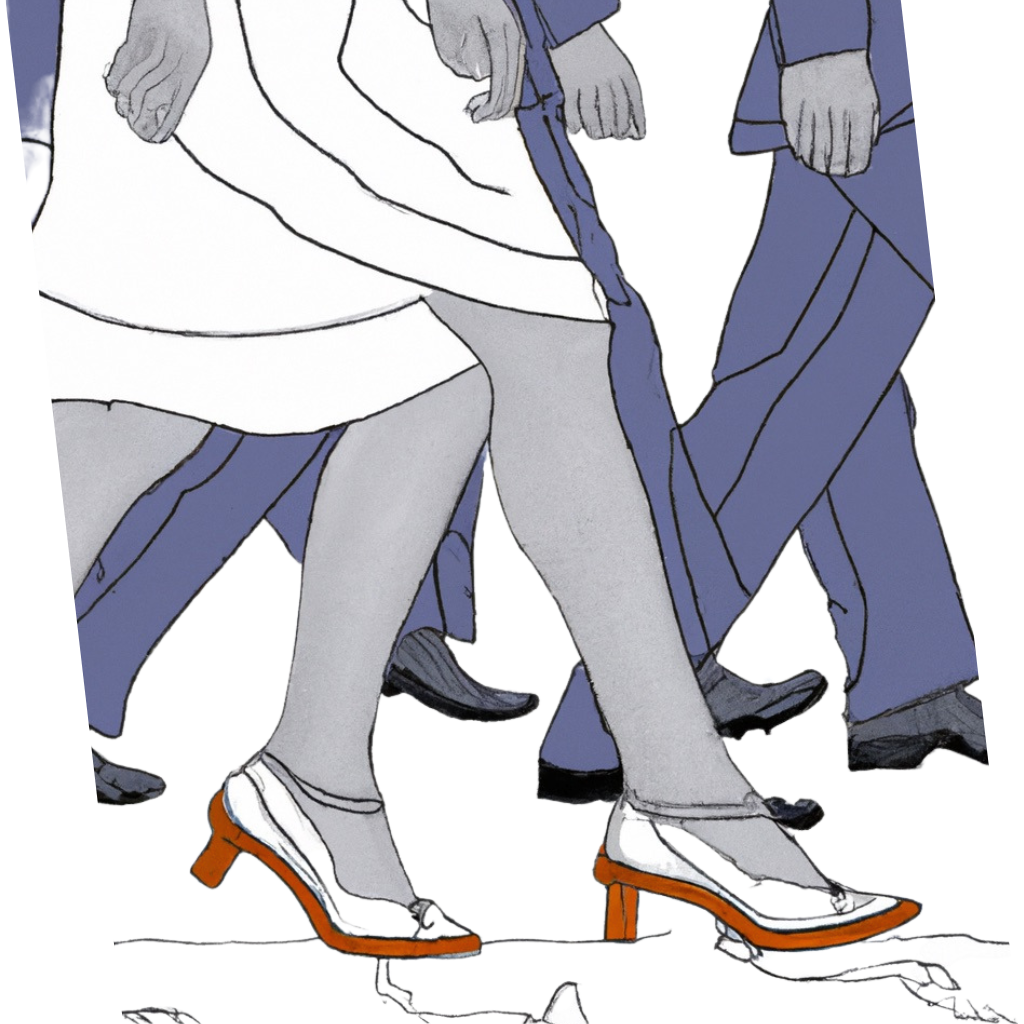What are the practical advantages of getting out of your office?
Peripatetic is just a fancy word for walking around. It comes from the name given to the adherents of Aristotle who, according to tradition, followed him as he strolled through Athens and philosophized. Peripateticism is not just for followers, though. It is also a great way to lead and manage people. As I wrote recently, great leaders open their eyes and ears to learn about and from their people. Wandering among and interacting with your people with such openness is a simple and rewarding way build mutual understanding.
A Negative Paradigm
But before we delve in, let’s learn from the negative paradigm.
Once upon a time, there was a boss who rarely left his office except for meetings and to have lunch with his favorite employee. You might catch him leaving the mens room or sneaking off to lunch, but that would be a pretty rare sighting.
As a result, he was out of touch and arrogant. He had no objective basis for placing his trust, and often misplaced it. His lunch companion manipulated him to serve herself. The rest of his people, by and large, mistrusted him as he grew more and more secretive, evading, gaslighting and flat-out lying as he sunk into paranoia.
Meanwhile, scuttlebutt about him spread. Since he did not have a basis to sort friend from foe, he confided in a lieutenant who was an infamous gossip. She spread rumors about his relationship with his lunchmate and bizarre tales about him being drunk in his office. She also poisoned his mind with falsehoods about his most loyal employees.
Soon other dishonest and self-serving people learned that they could benefit by misleading him and turning him against their adversaries, further isolating him from reality. As he sunk deeper into isolation, he became more dishonest and even bullying. People’s jobs were threatened over misinformation and paranoid suspicions. Careers were upturned. Superb employees fled to be replaced by mere sycophants and manipulators.
In the meantime, the boss was clearly miserable but had cut off all means of his escape back into reality. Eventually the stress of maintaining all his lies and secrecy got to him. His health deteriorated, and he retired abruptly, leaving a legacy of dysfunction in his wake. His favorite, the lunchtime companion, took his place.
A Positive Paradigm
Once upon another time, there was a boss who sought to be a great leader. He oversaw a vast enterprise that covered his entire state, with many offices in remote locations hours away. Because of the isolation of these offices, rumors and other problems inevitably started cropping up.
Instead of staying put in the comfort of his headquarters, this boss made a point of touring each office. The road time alone was daunting, but he was determined. In addition, he assured that one of his most trusted lieutenants was more centrally located so that she could travel more easily to all these offices.
Given the limitations of so many remote offices, it was difficult to maintain stability. Still, by moving about and being present in a variety of ways, these two were able to calm discord. When rumors or discontent popped up, as they will, these two leaders were able to smooth things over. Their efforts brought more transparency to the operation. For instance, when increasing turnover threatened, a candid discourse and some easily executed adjustments quickly settled the problem.
Why was all this possible? Because these two bosses practiced open leadership. They learned about the individuals and the distinctive cultures of each office. Consequently, they could quickly and effectively address issues as they came up. Rumors, which had raged like a wildfire, were soon extinguished as individuals heard the truth right from the top. These leaders knew their people, and their people knew them.
Peripatetic Leadership and Lunch
When I arrived at a new college to serve as its provost, I developed the practice of just walking around hallways of various buildings. At least once a week I would park far from my office and enter one of the academic buildings. People got used to seeing me out and about and and soon were more relaxed during our conversations, which were mostly just chit-chat about the weather and weekend plans and such. Other times faculty had concerns — serious and minor — they wanted me to address. Thus, my people were able to help me rapidly gain an understanding of my new culture outside a formal setting, and I was able solve their problems, often on the spot.
I would also overhear them teaching, which gave me a whole new perspective. To be clear, I was not spying or formally observing their teaching. In fact, I intentionally stayed far enough away so I could not hear their words but close enough to catch their tone. That is how I learned that the quietest and most unassuming faculty member was a dynamo of energy in the classroom. Meanwhile, I heard the most boastful and self-righteous professor bullying his students, which led me to intervene. All in all, though, I was impressed by the professionalism of the faculty and their love of their students.
One of my longtime secret tools for building work relationships had been a shared lunch, which is the great equalizer. At this school I joined faculty in the cafeteria. At first they were not sure what to make of my presence, all quieting when I spoke and laughing a little too hard at my jokes. Eventually they got used to me being there and warmed to me enough to forget my title and even rib me. As I did when I wandered the hallways, I learned a great deal about them and was often able to solve their problems right there. One other advantage, by taking this relaxing time every day, I cut down on the number of meetings in my office!
One thing to remember when interacting with your people is that to be effective you must approach boundaries, but you cannot cross them. I am sure I inadvertently crossed boundaries more than a few times but never with nefarious intent. Fortunately, my evident respect for my people was sincere, which helped me return to and maintain a healthy distance.
To be sure, taking the time to walk around required a massive effort, and I too often skipped the exercise. At the same time, I knew that by interacting with people I could prevent their small problems from becoming behemoths that I would have to wrestle with later. In addition, the mutual trust and respect I was able to develop meant that the faculty would step it up when I needed them and that I would do the same for them.
As challenging as it seemed at times, getting about was always the right call. The unexpected part was that when I returned to the pile of work waiting for me in my office, I was more energized, more cheerful, and way more productive. So, not only is peripatetic leadership a tool for leaders to develop relationships, increase shared understanding, and build an effective work environment, but it is a wonderful way to, as Stephen Covey advised, “sharpen the saw.” Since the health benefits of walking are also well established, peripatetic leadership practices are good for your body as well as good for your business!
If you are a boss or leader of any sort, get up. Get out. Get around. You will find that by doing so, you will engage your people more effectively, which will build mutual trust, teach you far more than you ever could learn any other way, and put you on the path of success.
How do you build trust with your people? How much do you interact with people in informal settings?
You can rapidly discover more about building success in the culture where you work through unconventional strategies, and I can help. Click below for your free consultation and gift.
Share your thoughts on this topic or participate in a discussion by leaving a comment below or by contacting me directly by email:
You’ll need to register with Substack to leave a comment, which is painless and free.
Please share this post on social media.
And don’t forget to SUBSCRIBE to have On Leading with Greatness sent weekly to your inbox. I look forward to hearing from you.
Intro and outro podcast theme music by LiteSaturation from Pixabay.















Share this post